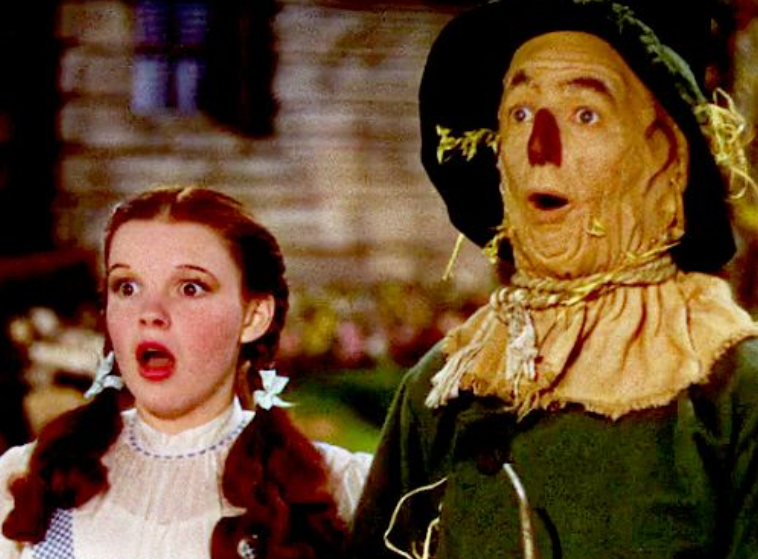These days, we often hear the phrase, “If you see something, say something.” But does the same admonition hold for when we KNOW something?

I have written elsewhere about how, on my first day at university, I walked in and out of Freshman History to try my luck at an experimental equivalent called Popular Culture in America. Chockful of historical bizarreries—yes, Virginia, Coca-Cola did begin as a cocaine drink—Dr. Frank Fox’s groundbreaking course taught me to question any uncritically assimilated worldview.
Is everything I believe really true?
Where did I get that idea?
What is the story beneath the story?
Take the classic children’s book, The Wonderful Wizard of Oz. Did you know that the object of the first of Frank Lyman Baum’s 41 books in the children’s series might not have been to deliver Dorothy safely back to Kansas? (And Toto, too!) According to Rutgers Distinguished Professor of Economics Hugh Rockoff, the book was written as an allegory for the 1896 U.S. presidential election. Congressman William Jennings Bryan ran on a platform to replace the gold standard with ‘Free Silver.’ Hollywood changed Dorothy’s ruby slippers from Baum’s original silver. Likable enough up close, leonine even, Bryan came off as cowardly to the public and handily lost to William McKinley. During the run, he argued that the Industrial Revolution had taken the heart out of American labor, particularly farmers who were no longer permitted to think for themselves. There’s more to Rockoff’s hypothesis, but a paragraph is usually enough to burst the bubble behind such a beloved tale.
I also studied film in college. Did you know that a special scene in minute 27 of almost every screenplay sends the action hurtling into Act II of the Beginning-Middle-End formulaic structure? Ask me why I stopped mentioning that little factoid when watching movies with friends.
Scott. No one wants to know how the sausage is made.
I buy that. But is it always the case?
Years ago, I worked for a think tank owned by the folks who invented the term and practice we now call outsourcing. A decade after its inaugural billion-dollar transaction changed the face of computing (and ultimately every other commodity business process), the outsourcer wanted to know whether the economics of the original model were still sound. So, they asked our merry band of thinkers to look into it. And as it turned out—by now, this shouldn’t be news to anyone—most outsourcing engagements went south by year 2. And even though we found out exactly why that was, for obvious reasons, we were not allowed to publish our findings.
Like knowing that after Obi-Wan appears at minute 27 of Star Wars: A New Hope, Luke’s life will never be the same; no one truly wants to know these things.
A final case in point: I once informed my company’s head of IT security that a trusted foreign state had come across our data stored on a criminal server.
Me: I think we should give them a listen. Find out what data they might have and how they might have got hold of it.
Him: Even if it were true, what makes you think I would want to know about it?
Got wit?
Keep it under your hat.
Or not.
This post is from a LinkedIn Newsletter called Human Changing. You can access the entire series here.

